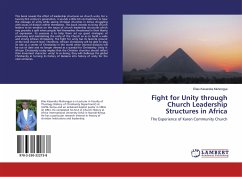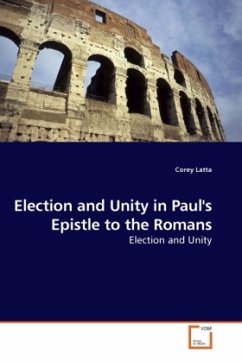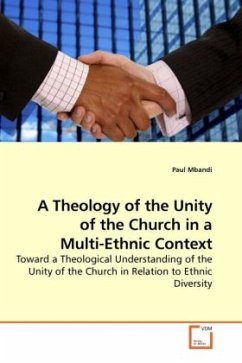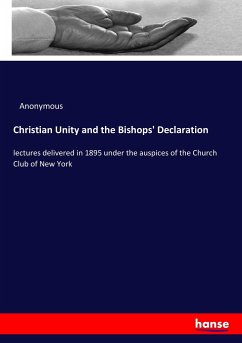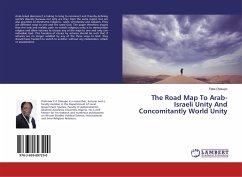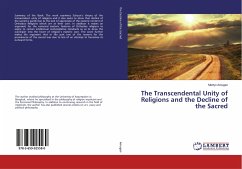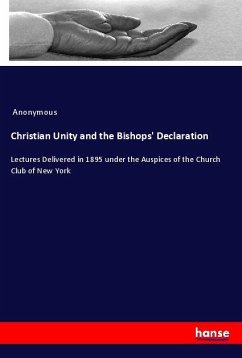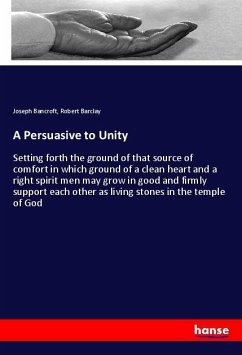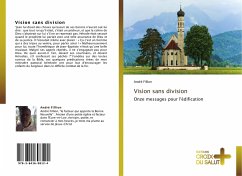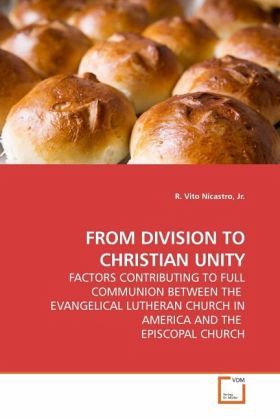
FROM DIVISION TO CHRISTIAN UNITY
FACTORS CONTRIBUTING TO FULL COMMUNION BETWEEN THE EVANGELICAL LUTHERAN CHURCH IN AMERICA AND THE EPISCOPAL CHURCH
Versandkostenfrei!
Versandfertig in 6-10 Tagen
52,99 €
inkl. MwSt.

PAYBACK Punkte
26 °P sammeln!
The 1999 United States Lutheran-Episcopalian agreement joined seven million people in a highly-structured ecclesiology. What factors contributed to such a massive and complicated ecclesial reconciliation? Doctrinal consensus is essential, but there is a role for the conditions and motivations which call forth and receive that consensus. The book s method is historiographical, the evidence comprises verbatim minutes of Lutheran assemblies, interviews with participants, and ELCA-conducted surveys. Many participants found non-doctrinal factors important or even decisive. The factors support the C...
The 1999 United States Lutheran-Episcopalian
agreement joined seven million people in a
highly-structured ecclesiology. What factors
contributed to such a massive and complicated
ecclesial reconciliation? Doctrinal consensus is
essential, but there is a role for the conditions
and motivations which call forth and receive that
consensus. The book s method is historiographical,
the evidence comprises verbatim minutes of Lutheran
assemblies, interviews with participants, and ELCA-
conducted surveys. Many participants found non-
doctrinal factors important or even decisive. The
factors support the Churches efforts to do what they
morally wanted to do. The factors which seem to have
made the most significant contributions overall to
the process of reaching full communion are: basic
conviction for unity, unity as linked to mission,
and the self-identity of the ELCA as dedicated to
unity. Churches must be aware that ecumenism exists
within the context of contributing factors which
will influence its prospects for success and which
can be at least partly understood and sometimes
awaited or enhanced.
agreement joined seven million people in a
highly-structured ecclesiology. What factors
contributed to such a massive and complicated
ecclesial reconciliation? Doctrinal consensus is
essential, but there is a role for the conditions
and motivations which call forth and receive that
consensus. The book s method is historiographical,
the evidence comprises verbatim minutes of Lutheran
assemblies, interviews with participants, and ELCA-
conducted surveys. Many participants found non-
doctrinal factors important or even decisive. The
factors support the Churches efforts to do what they
morally wanted to do. The factors which seem to have
made the most significant contributions overall to
the process of reaching full communion are: basic
conviction for unity, unity as linked to mission,
and the self-identity of the ELCA as dedicated to
unity. Churches must be aware that ecumenism exists
within the context of contributing factors which
will influence its prospects for success and which
can be at least partly understood and sometimes
awaited or enhanced.



